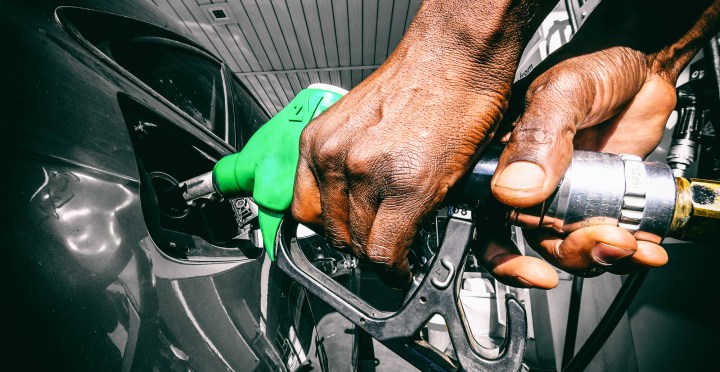PAIN AT THE PUMPS
How to beat next month’s expected fuel price increase

Joining lift clubs and/or working from home are some of the things consumers can do as fuel costs are set to increase (again) next month.
With fuel and food prices set to increase next month, Thato Kola, an economic analyst at Matrix Fund Managers, suggested consumers join lift clubs, look for food specials and where possible work from home.
Although this can’t apply to every sector, Kola said it was worth employers investigating flexible working arrangements so that employees could travel during off-peak hours.
To help consumers bear the blow of the fuel increases, a few weeks ago Parliament’s mineral resources committee heard the department was looking at encouraging remote working, lower speed limits, price caps and limiting petrol purchases to 50 litres at a time.
Petrol is expected to increase by between R1.85 and R1.93 per litre, while diesel is expected to go up by R3 per litre.
The Automobile Association (AA) said next month’s anticipated fuel increase “will be the biggest increases to fuel prices in South Africa’s history and will, undoubtedly, have major ramifications for all consumers and the economy in general.
“We must note, though… oil prices are, for the moment, see-sawing significantly so there may yet be some relief before the official adjustment by the Department of Mineral Resources and Energy is made going into April.
“We are seeing record fuel prices around the world as the high oil prices exact their toll in every market. Locally, there is little to cushion the blow for millions of South Africans who are struggling to cope with a fragile economy which is hurting their personal financial situation. Consumers should brace themselves and prepare for what is likely to be a long winter if the conflict in Ukraine is drawn out,” said the AA.
Fourteen babies and toddlers have starved to death in Nelson Mandela Bay in the past 15 months
Kola said fuel increases “will bring about significant increases in transport costs with associated increases in taxi and bus fares”.
The indirect effect will be “higher food and beverage prices due to increases in transportation costs, given the higher fuel prices.
“As food and fuel prices increase, it increases the overall CPI basket, which is the official measure of inflation in the country. Due to this higher inflation environment, currently, and forecast over the next two years, the South African Reserve Bank has started increasing interest rates in order to bring inflation under control (closer to 4.5%). Higher interest means that consumers who have mortgages and cars at a floating rate will have to pay more monthly to finance their assets,” said Kola.
A month ago, the Pietermaritzburg Economic Justice and Dignity group released their Household Affordability Index. They noted that transport and electricity were non-negotiable expenses that take up 58% of national minimum wage workers’ salaries.
With R3,470.40 being the national minimum wage for a general worker, the increased fuel price and food costs will “lead to an erosion of disposable income for consumers which could’ve been directed to other things”, said Kola.
Hanneke van Linge, Nosh Food Rescue’s managing director, said the fuel increases could lead to donors throwing their food away instead of delivering it to the organisation’s drop-off centres “because it would be cheaper to dump food then get it to a place that needs it”.
Van Linge said Nosh Food Rescue needed more networks where people could drop food off.
Nosh Food Rescue transforms produce which would otherwise have gone to landfills into nutritious meals and facilitates the collection of potential food waste and its distribution to a network of soup kitchens, shelters and feeding schemes.
At a mineral resources committee meeting last week, petroleum refining, retailing and wholesalers’ associations said cutting government taxes and levies could assist in easing the anticipated fuel increase. DM
[hearken id=”daily-maverick/9303″]

















 Become an Insider
Become an Insider
Comments - Please login in order to comment.